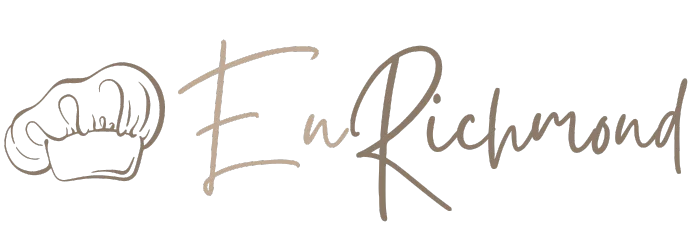Receiving a summons for debt collection can be an unsettling experience. It marks the transition of unpaid debt into a legal issue that demands immediate attention. This guide provides a step-by-step approach to navigating this challenging situation, ensuring you’re prepared to respond effectively.
Understanding Your Summons
When a summons lands in your hands, it’s crucial to grasp what it entails and the implications for your financial health.
A summons is a legal document issued by a court or a debt collector, indicating that a lawsuit has been filed against you for unpaid debt. It typically outlines the details of the debt, the creditor’s claims, and a specified period within which you must respond.
Upon receiving a summons, your first step should be to verify its authenticity. Confirm the details of the debt, including the creditor’s name, the amount owed, and the account in question. It’s essential to ensure the debt is yours and the amount is accurate.
The summons will specify a deadline for your response, usually ranging from 20 to 30 days. Ignoring this deadline can lead to a default judgment against you, granting the creditor the right to garnish your wages or seize assets. Prompt action is imperative to protect your interests.
Crafting Your Response
Formulating a response to a summons is a critical step in defending yourself in the legal process.
Before drafting your response, consider your defense strategy. Common defenses include challenging the debt’s validity, disputing the amount claimed, or asserting that the statute of limitations has expired. Each defense requires specific evidence and a tailored approach.
Your response, known as an “Answer,” should address each allegation made in the summons. You have the option to admit, deny, or express a lack of knowledge regarding each claim. This document should be formal, factual, and devoid of emotional language.
Once your Answer is prepared, you must file it with the court and serve a copy to the plaintiff’s attorney or the debt collector. Adhering to the court’s rules for filing and serving documents is crucial to ensure your response is recognized and considered by the court.
Considering Settlement Options

In some cases, settling the debt outside of court can be a pragmatic approach to resolving the issue.
Evaluating Settlement Pros and Cons
Settlement can offer a way to resolve the debt for less than the amount claimed, avoiding the unpredictability of a court judgment. However, it’s vital to weigh this option carefully, considering your financial situation and the potential impact on your credit score.
Negotiating a Settlement
If you choose to pursue a settlement, initiate negotiations with the creditor or their attorney. Be clear about what you can afford to pay and seek a written agreement that specifies the terms of the settlement, including the total amount to be paid and the timeline for payment.
The Role of Legal Advice
Navigating debt collection summons and considering settlement options can be complex. Consulting with a legal professional can provide clarity, ensuring you understand your rights and the implications of your decisions. Legal advice can be particularly valuable in negotiating settlement terms that protect your financial interests.
Navigating Legal Representation
Choosing whether to hire a lawyer is a significant decision when faced with a lawsuit.
Having an attorney can provide a strategic advantage, especially if the amount is substantial or the legal issues are complex. Engaging a reputable law firm like Darrell Cook & Associates, known for their expertise in handling cases, can be particularly beneficial. A knowledgeable lawyer from their team can navigate court procedures, craft a more compelling defense, and potentially negotiate better settlement terms on your behalf, leveraging their experience and understanding of the legal landscape to your advantage.
For smaller debts or straightforward cases, self-representation might be a viable option. This approach can save on legal fees, but it requires a willingness to learn court procedures and legal principles. If you choose this path, make use of legal aid resources and self-help legal information available from courts or non-profit organizations.
Responding to Discovery Requests

In a lawsuit, the discovery phase allows both parties to exchange information relevant to the case.
Discovery may include requests for documents, written questions (interrogatories), and depositions. This process helps clarify the facts of the case and the evidence each side may present in court. Responding accurately and fully to discovery requests is crucial, as failure to do so can negatively impact your case.
Keep organized records of all communications and documents exchanged during discovery. If certain requests seem unreasonable or overly burdensome, you may object to them, but this must be done formally and with a valid legal basis. Consider seeking legal advice to navigate complex discovery issues.
The Impact of a Judgment
Understanding the potential outcomes of a debt collection lawsuit is crucial for informed decision-making.
If the court rules against you, the judgment may include the debt amount plus interest and fees. This can lead to wage garnishment, bank account levies, and liens on property. A judgment also affects your credit score and can remain on your credit report for years.
Even after a judgment, you have options. You might negotiate a payment plan, challenge the judgment if there were procedural errors, or in some cases, consider bankruptcy. Each option has significant implications, so careful consideration and possibly legal advice are advisable.
Bankruptcy Considerations
Bankruptcy is a legal process that can discharge certain debts, but it’s a decision with far-reaching consequences.
Bankruptcy can offer relief from overwhelming debt, including some debts subject to collection lawsuits. However, it impacts your credit score, remains on your credit report for up to 10 years, and not all debts are dischargeable.
Understanding the differences between Chapter 7 and Chapter 13 bankruptcy is important. Chapter 7 involves liquidating assets to pay off debts, while Chapter 13 involves a repayment plan. Both require counseling sessions and detailed filings, so consulting with a bankruptcy attorney is recommended.
Maintaining Financial Health Post-Lawsuit

After resolving a debt collection lawsuit, taking steps to rebuild your financial stability is key.
Create a budget, establish an emergency fund, and start rebuilding your credit. Consider using secured credit cards and small, manageable loans to demonstrate responsible credit use. Regularly monitor your credit report to ensure accuracy and track your progress.
Consider consulting with financial advisors or credit counselors. They can provide personalized advice on budgeting, debt management, and credit improvement strategies tailored to your situation, helping you achieve long-term financial health.
Conclusion
In conclusion, responding to a debt collection summons requires careful consideration, timely action, and a strategic approach. By understanding the summons, crafting a thoughtful response, and evaluating settlement options, you can navigate this challenging situation with confidence. Remember, seeking legal advice can provide additional support and guidance, helping you make informed decisions throughout the process.
Related Posts:
- How Do You Apply for Long-Term Disability: A…
- 3 Amazing Virginia Foods To Try And Where To Find…
- How Taxi Fares Are Calculated and Tips for Riders -…
- Can You Eat Raw Zucchini? Safety, Taste, and Best Recipes
- Can You Smoke Frozen Chicken Wings (& How to Do It)
- When Should You Hire a Commercial Litigation Lawyer? 10 Tips












